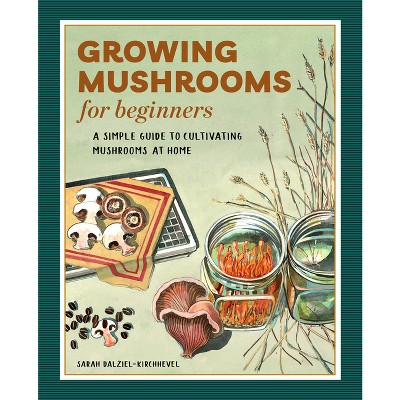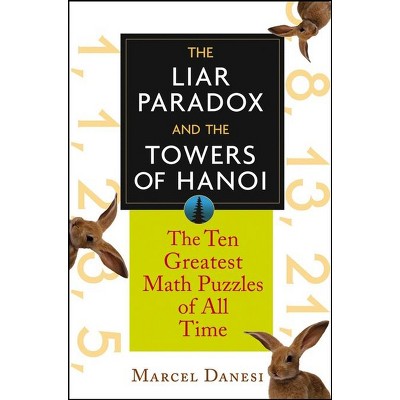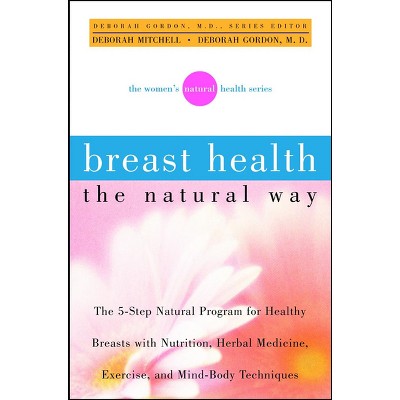Sponsored

The Theory of Evolution - by Cynthia L Mills (Paperback)
In Stock
Sponsored
About this item
Highlights
- Everything mammals ever wanted to know about the theory of evolution-but were afraid to askThis important new book by award-winning science writer Cynthia Mills clearly explains one of the most crucial, and most misunderstood, concepts of modern science-the theory of evolution.
- About the Author: CYNTHIA L. MILLS is an award-winning science writer and practicing veterinarian.
- 218 Pages
- Science, Life Sciences
Description
Book Synopsis
Everything mammals ever wanted to know about the theory of evolution-but were afraid to askThis important new book by award-winning science writer Cynthia Mills clearly explains one of the most crucial, and most misunderstood, concepts of modern science-the theory of evolution. After examining Darwin, his precursors, and how the theory of evolution developed, Mills answers key questions, including: How successful is the theory at explaining the natural world, and what does it fail to explain? What are some of the competing ideas and theories about the origin of the species? How will the theory of evolution likely hold up over time, as our understanding of genetics grows?
Cynthia L. Mills (Portland, OR) is an award-winning science writer and veterinarian. Her article "Breeding and Discontents," originally published in The Sciences, was selected for The Best American Science and Nature Writing 2001, guest-edited by E. O. Wilson. Also in the same series: The Big Bang Theory (0-471-39452-1) by Karen C. Fox
From the Back Cover
Everything mammals ever wanted to know about evolution--but were afraid to askA lightning rod for more than a century, the subject of evolution continues to be a highly volatile one. Just as Charles Darwin's remarkable announcement generated a venomous response, here in the twenty-first century the theory of evolution is still frequently greeted with alarm, ridicule, and denial. Yet, it has managed to persevere, taking on a life of its own and holding steadfast against attack.
This important new book by award-winning science writer Cynthia Mills clearly explains one of the most crucial-and most misunderstood-explanatory theories of modern science. She examines how the theory arose, how it "evolved," and why it is successful at explaining how life is perpetuated, in all its varied forms. Taking a historical approach, Mills begins with Enlightenment-era explanations for the origins of life, introducing the early scientists and philosophers who had the greatest influence on Darwin's thinking. She then examines Darwin's seminal work and later elaborations, answering key questions such as:
- How successful is the theory at explaining the natural world?
- What are some of the competing ideas and theories about the origin of the species?
- How has the theory withstood critics in greater number and of greater passion than any other scientific concept?
- How will the theory likely hold up over time and address new challenges as our understanding of genetics and biology grows?
- Where does the theory fail?
Review Quotes
Popular legend has it that the theory of evolution sprang fully formed from Darwin's brain, like Athena from the head of Zeus. Mills, an award-winning science writer and veterinarian, pulls back the curtain on the dozens of scientists who have contributed to our modern understanding of evolution. Even before Darwin wrote "On the Origin of Species", scientists contemplated the idea; Mills includes a poem by Darwin's grandfather that comes close to our modern understanding of the origin of life. Mills describes the evolution of evolutionary theory, along with the many pitfalls and theoretical dead ends encountered along the way. Darwin himself was not free from error, initially believing that inheritance was caused by a commingling of the parents' blood in the fetus. Any discussion of evolution must include the strong and ongoing anti-evolution movement, and Mills successfully weaves this into her narrative. In a section on eugenics and social Darwinism, Mills clears away confusion over what evolution does and doesn't claim about humanity and explores the theory's misuses and abuses at the hands of politicians. Mills's writing is concise and elegant, making a compelling story out of an avalanche of scientific papers and public debates. Even for a student of evolution, this book contains a few surprises. For the novice, Mills provides a complete glossary that demystifies scientific jargon. The discussion of the most recent debates on evolution is a little opaque, but readers will finish this book understanding what evolution is, where it came from and why it works, just as the title promises. And with a simpler style than Larson's (reviewed above), this will be accessible to a larger contingent of readers. (May)
FYI: "This is the second volume in Wiley's What It Is, Where It Came From, and Why It Works series." ("Publishers Weekly", March 22, 2004)
About the Author
CYNTHIA L. MILLS is an award-winning science writer and practicing veterinarian. She has written articles for The Sciences, Health, Muse, Discovery.com, Equus, Pacific Discovery, and Earth. Her article "Breeding Discontent" (The Sciences, May/June 2000, guest-edited by E. O. Wilson) was selected for The Best American Science and Nature Writing 2001.Shipping details
Return details
Frequently bought together

Trending Non-Fiction
















